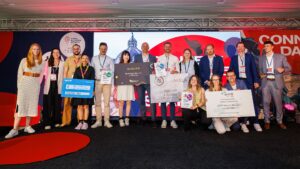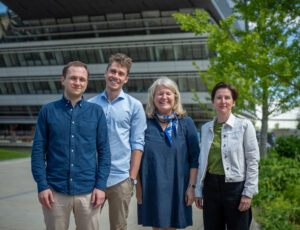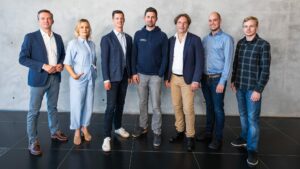Work & Chill? Nomad Balkans offers authentic and sustainable experiences for remote workers
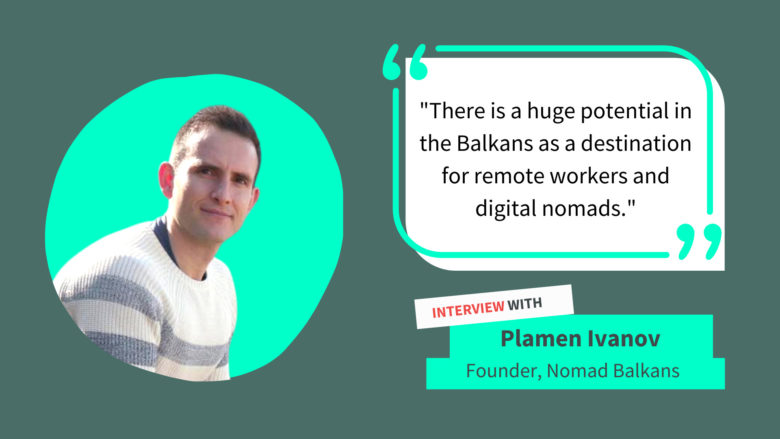
If you could choose without limitations, what working environment would you go for? Formal, home office, remote work? Maybe a cozy villa in the mountains or a sunny house right at the beach?
We have discussed the future of work multiple times: Freelance, workation, digital nomad lifestyle, remote work. Many countries across Europe such as Croatia, Italy, Spain, Greece, Romania, have already established themselves as some of the top destinations for remote workers and digital nomads. But where does Bulgaria position itself on the global map of remote work?
With the project Nomad Balkans, Plamen Ivanov and Veselina Vasileva are on a mission to create authentic, unique, and sustainable travel experiences for remote workers in Bulgaria. Plamen is an entrepreneur by spirit, traveler by heart, and passionate about working with purpose. Veselina is a travel connoisseur and is all about meaningful experiences & sustainable living. After +10 years of living, working, and studying abroad, both co-founders met in their home country to give rise to Nomad Balkans and create a new way of traveling and experiencing Bulgaria.
In an interview for Trending Topics, Plamen Ivanov, co-founder of Nomad Balkans, shares more about the project. Enjoy!
What is the story behind Nomad Balkans?
It all started when Veselina and I met online after an introduction by a mutual friend. We found out we have a lot in common and have similar backgrounds – we both studied tourism and worked in Spain for many years. At the time, we were both working on our own travel-related projects in Bulgaria. We shared the same values and vision about a more sustainable tourism sector in Bulgaria, with alternative and more authentic travel propositions related to our beautiful nature, fascinating culture, and history.
When the COVID-19 pandemic hit and we experienced the impact on traditional ways of travel, we decided to shift our focus and integrate into our travel concept another component that we are passionate about – Remote Work. That’s how Nomad Balkans was born, with the idea of organizing Company Retreats and Workations, bringing remote working teams and individuals to inspiring locations in Bulgaria.
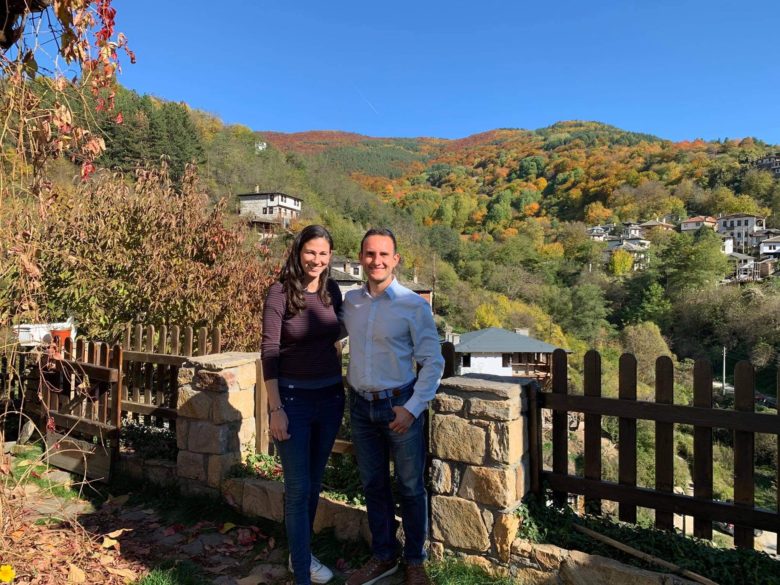
What are the key problems that Nomad Balkans solves?
There are some critical problems on both sides of the equation, demand, and supply, which we are addressing.
On the customer side, remote work has brought lots of challenges to individuals. Some examples are the struggle with setting work-life boundaries, inability to unplug, growing loneliness, and risk of burnout. Many teams face communication issues and weak team bonds due to a lack of personal connection.
On the supply side, we see the problem that Bulgaria is still mostly known just as an affordable place to go for beach or ski holidays, and is truly underestimated as a tourist destination. We are focusing on promoting a sustainable product, which can help the accommodations and other service and activity providers to have more clients off-season. We offer both city and countryside destinations around Bulgaria in order to grow rural and alternative tourism and help local communities and businesses benefit more.
Most of the tour agencies in Bulgaria are still operating in a traditional way. They focus on bringing big groups during the high season, organizing round trips around the country, visiting the same popular destinations over and over again. We challenged this assumption from day 1. We wanted to bring people to stay longer at the same place in order to feel the atmosphere and experience it like locals.
The remote work revolution – accelerated due to the pandemic – is facilitating this type of travel to flourish. It feels challenging to be among the pioneers that work in this new emerging niche, but at the same time produces a lot of excitement.
Who is Nomad Balkans aimed at?
We target companies with fully remote or hybrid work models and distributed/remote workforce. Since in most of the cases they do not have physical offices, we facilitate for them the process of bringing their teams together in a Work Retreat, creating lasting team bonds, and strengthening their company culture.
In the private segment, our Workation experiences are aimed at remote-working employees, freelancers, and entrepreneurs, traveling solo, as a couple, family, or friends.
Geographically, aside from Bulgarians, we focus mostly on companies and individuals based in Central and Western Europe, in locations with convenient flight connections to Bulgaria.
What are the advantages and the challenges of working remotely?
The recent mass transition to remote work happened at such a scale and pace, that most of the people could not adapt to it in the way that freelancers, entrepreneurs, or remote employees did. Certainly, COVID-19 is making it difficult to tackle the challenges of working from home, such as social isolation, the difficulty of setting boundaries, and keeping healthy habits. However, at the same time, it has prevented most people from realizing the freedom that comes with it. Remote work represents a fundamental shift not only in the way we work but also in how we spend our time in a more productive and fulfilling manner.
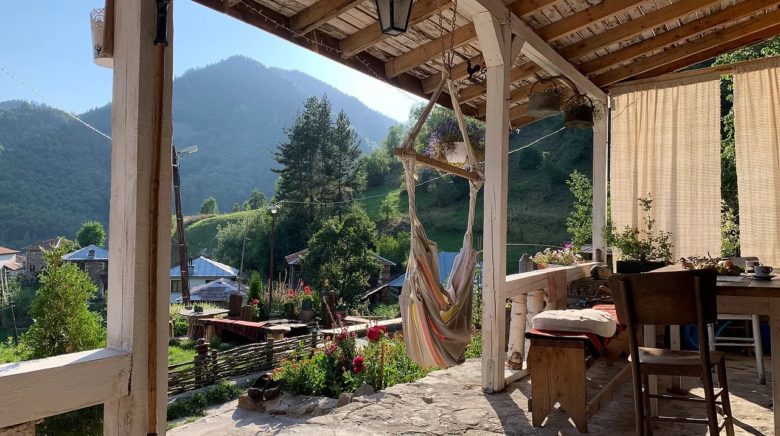
What does Bulgaria offer to remote workers that other destinations can not provide?
Bulgaria is still a hidden gem, including for most of the globetrotters that combine remote work and pleasure, the so-called Digital Nomads. Our country has all the ingredients to become a go-to destination for remote workers. Among those are high-speed Internet network, a growing amount of co-working and co-living spaces, proximity, and accessibility from major European cities. On top of that, we have a four-season climate to enjoy diverse environments all year round, fascinating culture, beautiful nature, organic food, a place to enjoy a great work-life balance.
Apart from Bansko, which is a well-known hub for remote workers, we believe our cities have lots of potential to host this type of travelers seeking a combination of excellent work environment, entertainment, and entrepreneurial community, such as Plovdiv, Burgas, Varna, Veliko Tarnovo, and certainly Sofia.
Our major goal is however to bring our audience’s attention to some less known destinations – in rural and mountain environments. Such places offer a peaceful environment close to nature, the perfect getaway from the fast-paced city lifestyle while enjoying a good Internet connection.
Why is it important to establish Bulgaria as a remote work destination/digital nomad hub?
Workation is a new type of travel – a combination of work + vacation – suitable for any individual that can work remotely. Up until recently, going on such extended trips was considered a luxury only accessible to a few lucky individuals that can work from anywhere, such as the Digital Nomads.
Now, remote work is becoming a permanent reality for more people. Becoming an attractive destination for Digital Nomads can bring our country a lot of benefits, beyond the economic ones. These are people that deliberately choose which country to live in and to spend their money in. They are not competing in the local job market, but rather bring their work with them. Most of these people have an entrepreneurial mindset and often start local businesses, creating opportunities, nurturing the ecosystem, and giving back.
Looking at the latest trends and developments of the tourism sector, do you think that alternative tourism and remote work are the future of this sector?
Absolutely. Tourism is one of the most important sectors in the Bulgarian economy, accounting for about 10% of the country’s GDP. However, the way the industry developed in the recent decades has been mostly linked to increasing our productive capacity (more beds) to accommodate as many tourists as possible during the high season, rather than on increasing the quality of our proposition, on diversification and creating a strong brand identity.
Alternative tourism – as opposed to the traditional model of “sun, sand, and sea” – focuses on attracting visitors because of our distinct cultural and historical heritage, diverse natural environment, unique traditions, and customs, or exquisite cuisine. Here lies the true opportunity for everyone to innovate and to create attractive products and services that lead to happy and returning visitors.
I strongly believe that remote work is going to open a wide spectrum of opportunities in the tourism sector. It will also make travel more sustainable while deseasonalizing the demand. This will also allow for extending the travel season in some of our beautiful seaside and ski destinations, beyond the busy Summer/Winter periods, contributing to a better service proposition.
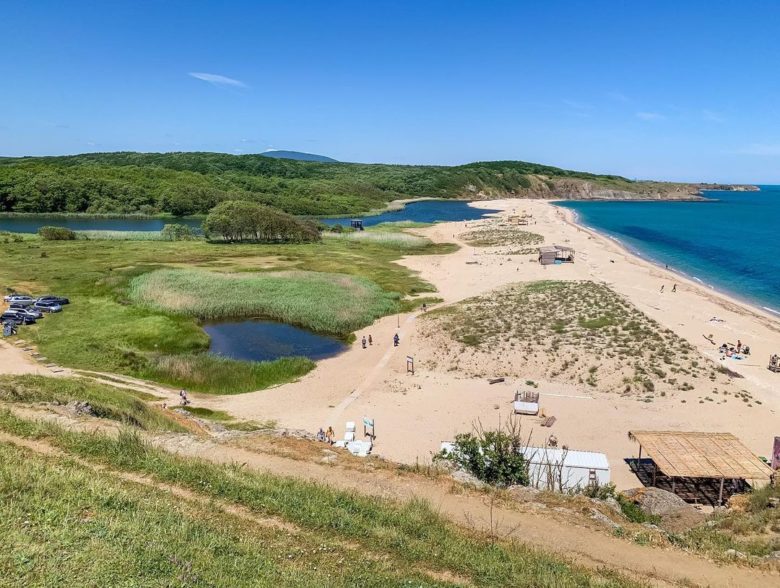
What are your plans for the future? Where are you headed?
We will keep working on developing creative travel packages for remote working companies and individuals. As a travel company at our core, it is our main goal to get our customers to know Bulgaria in an authentic way. At the same time, we also strive towards bringing high value to the companies we work with, helping them stand out from the competition by building unique employee benefit programs including regular team retreats and workations for their staff, as a powerful tool for talent acquisition and staff retention.
We are aiming to position ourselves as a reliable partner for organizing memorable work retreat experiences. This is a growing niche with huge untapped potential.
Where can people find out more about your current remote work destinations and retreats?
The best way to find out more about what we do and our destinations is through our website. We are continuously working on adding new destinations into our portfolio and including hidden gems unknown to the wider public. Our destinations are suitable for both international and local customers.
Our focus from the beginning is on developing our concept here in Bulgaria. Once we have set the right high standards in place, we have the aspiration to replicate the model also in neighboring countries. We believe there is a huge potential in the Balkans as a destination for the remote workers and digital nomads of tomorrow, which would bring a lasting impact throughout the entire region.

















